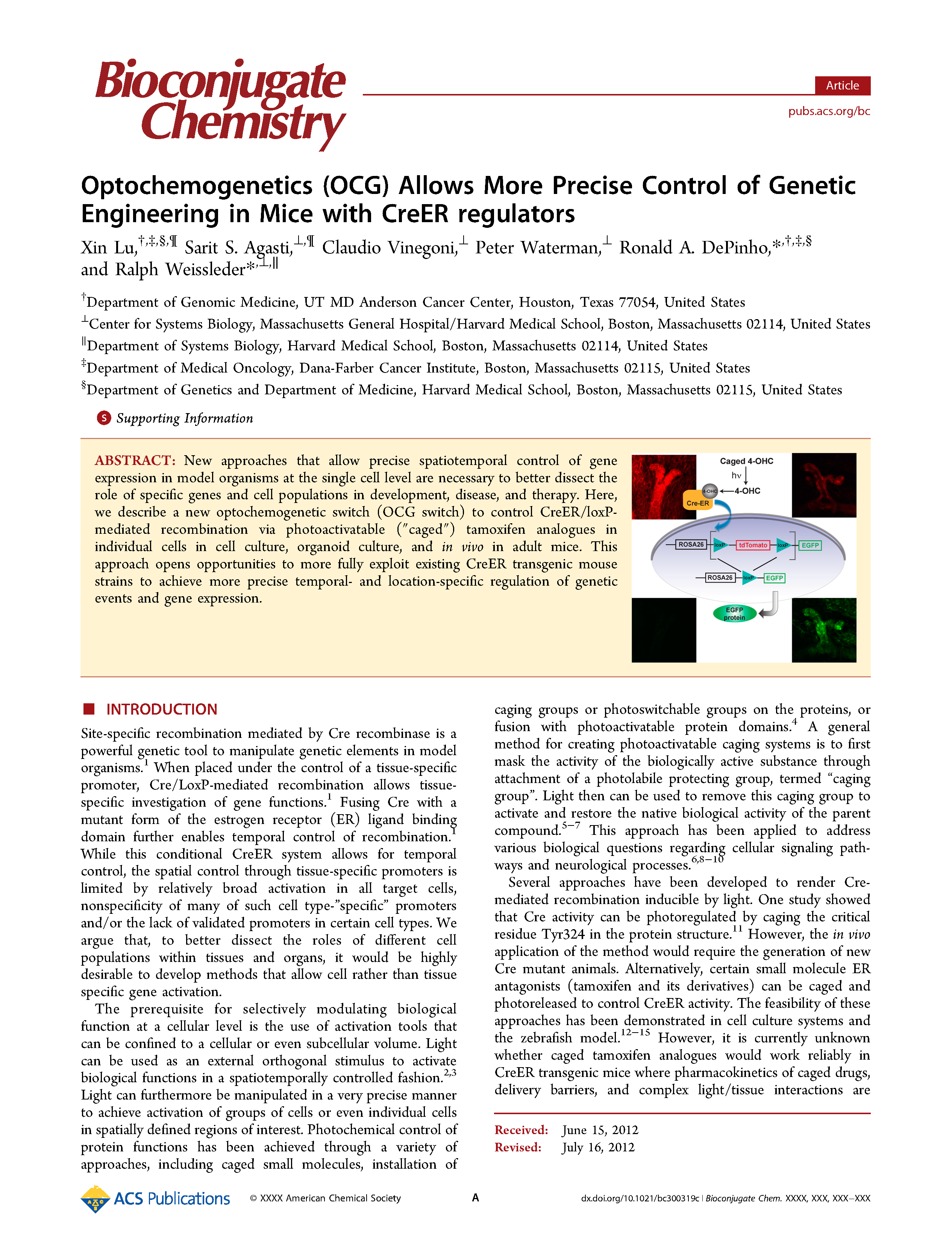Optochemogenetics (OCG) Allows More Precise Control of Genetic Engineering in Mice with CreER regulators
Bioconjugate Chemistry
Abstract
"New approaches that allow precise spatiotemporal control of gene expression in model organisms at the single cell level are necessary to better dissect the role of specific genes and cell populations in development, disease, and therapy. Here, we describe a new optochemogenetic switch (OCG switch) to control CreER/loxP-mediated recombination via photoactivatable ("caged") tamoxifen analogues in individual cells in cell culture, organoid culture, and in vivo in adult mice. This approach opens opportunities to more fully exploit existing CreER transgenic mouse strains to achieve more precise temporal- and location-specific regulation of genetic events and gene expression."
Full citation
For attribution in academic contexts, please cite this work as:
| Lu, X., Agasti, S. S., Vinegoni, C., Waterman, P., DePinho, R. A., & Weissleder#, R. (2012). Optochemogenetics (OCG) Allows More Precise Control of Genetic Engineering in Mice with CreER regulators. Bioconjugate Chemistry, 23(9), 1945–1951. https://doi.org/10.1021/bc300319c |

Lu, X., Agasti, S. S., Vinegoni, C., Waterman, P., DePinho, R. A., & Weissleder#, R. (2012). Optochemogenetics (OCG) Allows More Precise Control of Genetic Engineering in Mice with CreER regulators. Bioconjugate Chemistry, 23(9), 1945–1951. https://doi.org/10.1021/bc300319c